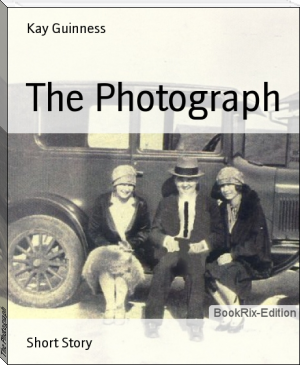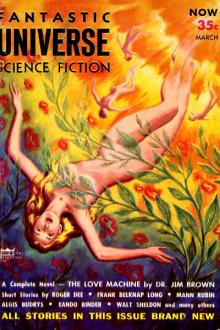Indian Ghost Stories, S. Mukerji [ebook voice reader txt] 📗

- Author: S. Mukerji
- Performer: -
Book online «Indian Ghost Stories, S. Mukerji [ebook voice reader txt] 📗». Author S. Mukerji
The Project Gutenberg EBook of Indian Ghost Stories, by S. Mukerji
This eBook is for the use of anyone anywhere at no cost and with
almost no restrictions whatsoever. You may copy it, give it away or
re-use it under the terms of the Project Gutenberg License included
with this eBook or online at www.gutenberg.net
Title: Indian Ghost Stories
Second Edition
Author: S. Mukerji
Release Date: November 20, 2005 [EBook #17113]
Language: English
*** START OF THIS PROJECT GUTENBERG EBOOK INDIAN GHOST STORIES ***
Produced by David Starner, Martin Pettit and the Online
Distributed Proofreading Team at http://www.pgdp.net
INDIAN GHOST STORIES S. MUKERJI SECOND EDITION ALLAHABAD: A.H. WHEELER & CO. 1917. CONTENTS
I do not know whether writing ghost stories is a mistake.
Most readers will like a ghost story in which towards the end it is found that the ghost was really a cat or a dog or a mischievous boy.
Such ghost stories are a source of pleasure, and are read as a pastime and are often vastly enjoyed, because though the reader is a bit afraid of what he does not know, still he likes to be assured that ghosts do not in reality exist.
Such ghost stories I have often myself read and enjoyed. The last one I read was in the December (1913) Number of the English Illustrated Magazine. In that story coincidence follows coincidence in such beautiful succession that a young lady really believes that she sees a ghost and even feels its touch, and finally it turns out that it is only a monkey.
This is bathos that unfortunately goes too far. Still, I am sure, English readers love a ghost story of this kind.
It, however, cannot be denied that particular incidents do sometimes happen in such a way that they take our breath away. Here is something to the point.
"Twenty years ago, near Honey Grove, in Texas, James Ziegland, a wealthy young farmer won the hand of Metilda Tichnor, but jilted her a few days before the day fixed for the marriage. The girl, a celebrated beauty, became despondent and killed herself. Her brother, Phil, went to James Ziegland's home and after denouncing him, fired at him. The bullet grazed the cheek of the faithless lover and buried itself in a tree. Young Tichnor, supposing he had killed the man, put a bullet into his own head, dying instantly. Ziegland, subsequently married a wealthy widow. All this was, of course 20 years ago. The other day the farmer James Ziegland and his son cut down the tree in which Tichnor's bullet had lodged. The tree proved too tough for splitting and so a small charge of dynamite was used. The explosion discharged the long forgotten bullet with great force, it pierced Ziegland's head and he fell mortally wounded. He explained the existence of the mysterious bullet as he lay on his deathbed."—The Pioneer, Allahabad, (India,) 31st January, 1913.
In India ghosts and their stories are looked upon with respect and fear. I have heard all sorts of ghost stories from my nurse and my father's coachman, Abdullah, who used to be my constant companion in my childhood, (dear friend, who is no more), as well as from my friends who are Judges and Magistrates and other responsible servants of Government, and in two cases from Judges of Indian High Courts.
A story told by a nurse or a coachman should certainly not be reproduced in this book. In this book, there are a few of those stories only which are true to the best of the author's knowledge and belief.
Some of these narratives may, no doubt, savour too much of the nature of a Cock and Bull story, but the reader must remember that "there are more things in heaven and earth, etc." and that truth is sometimes stranger than fiction.
The author is responsible for the arrangement of the stories in this volume. Probably they could have been better arranged; but a little thought will make it clear why this particular sequence has been selected.
S.M.
Calcutta, July 1914.
PREFACE TO THE SECOND EDITION.Since the publication of the first edition my attention has been drawn to a number of very interesting and instructive articles that have been appearing in the papers from time to time. Readers who care for subjects like the present must have themselves noted these; but there is one article which, by reason of the great interest created in the German Kaiser at the present moment, I am forced to reproduce. As permission to reproduce the article was delayed the book was through the press by the time it arrived. I am therefore reproducing here the article as it appeared in "the Occult Review of January 1917". My grateful thanks are due to the proprietors and the Editor of "the Occult Review" but for whose kind permission some of my readers would have been deprived of a most interesting treat.
WILHELM II AND THE WHITE LADY OF THE HOHENZOLLERNS.
By KATHARINE COX.[1]
A great deal has been written and said concerning the various appearances of the famous White Lady of the Hohenzollerns. As long ago as the fifteenth century she was seen, for the first time, in the old Castle of Neuhaus, in Bohemia, looking out at noon day from an upper window of an uninhabited turret of the castle, and numerous indeed are the stories of her appearances to various persons connected with the Royal House of Prussia, from that first one in the turret window down to the time of the death of the late Empress Augusta, which was, of course, of comparatively recent date. For some time after that event, she seems to have taken a rest; and now, if rumour is to be credited, the apparition which displayed in the past so deep an interest in the fortunes—or perhaps one would be more correct in saying misfortunes—of the Hohenzollern family has been manifesting herself again!
The remarkable occurrences of which I am about to write were related by certain French persons of sound sense and unimpeachable veracity, who happened to be in Berlin a few weeks before the outbreak of the European War. The Kaiser, the most superstitious monarch who ever sat upon the Prussian throne, sternly forbade the circulation of the report of these happenings in his own country, but our gallant Allies across the Channel are, fortunately, not obliged to obey the despotic commands of Wilhelm II, and these persons, therefore, upon their return to France, related, to those interested in such matters, the following story of the great War Lord's three visitations from the dreaded ghost of the Hohenzollerns.
Early in the summer of 1914 it was rumoured, in Berlin, that the White Lady had made her re-appearance. The tale, whispered first of all at Court, spread, gradually amongst the townspeople. The Court, alarmed, tried to suppress it, but it refused to be suppressed, and eventually there was scarcely a man, woman or child in the neighbourhood who did not say—irrespective of whether they believed it or not—that the White Lady, the shadowy spectre whose appearance always foreboded disaster to the Imperial House, had been recently seen, not once, but three times, and by no less a person than Kaiser Wilhelm himself!
The first of these appearances, so rumour stated, took place one night at the end of June. The hour was late: the Court, which was then in residence at the palace of Potsdam, was wrapped in slumber; all was quiet. There was an almost death-like silence in the palace. In one wing were the apartments of the Empress, where she lay sleeping; in the opposite wing slept one of her sons; the other Princes were in Berlin. In an entirely different part of the royal residence, guarded by three sentinels in a spacious antechamber, sat the Emperor in his private study. He had been lately, greatly engrossed in weighty matters of State, and for some time past it had been his habit to work thus, far into the night. That same evening the Chancellor, von Bethman-Hollweg, had had a private audience of his Majesty, and had left the royal presence precisely at 11-30, carrying an enormous dossier under his arm. The Emperor had accompanied him as far as the door, shaken hands with him, then returned to his work at his writing-desk.
Midnight struck, and still the Emperor, without making the slightest sound, sat on within the room. The guards without began to grow slightly uneasy, for at midnight punctually—not a minute before, not a minute after—it was the Emperor's unfailing custom, when he was working late at night, to ring and order a light repast to be brought to him. Sometimes it used to be a cup of thick chocolate, with hot cakes; sometimes a few sandwiches of smoked ham with a glass of Munich or Pilsen beer—but, as this particular midnight hour struck the guards awaited the royal commands in vain. The Emperor had apparently forgotten to order his midnight meal!
One o'clock in the morning came, and still the Emperor's bell had not sounded. Within the study silence continued to reign—silence as profound indeed as that of the grave. The uneasiness of the three guards without increased; they glanced at each other with anxious faces. Was their royal master taken ill? All during the day he had seemed to be labouring under the influence of some strange, suppressed excitement, and as he had bidden good-bye to the Chancellor they had noticed that the expression of excitement on his face had increased. That something of grave import was in the air they, and indeed every one surrounding the Emperor, had long been aware, it was just possible that the strain of State affairs was becoming too much for him, and that he had been smitten with sudden indisposition. And yet, after all, he had probably only fallen asleep! Whichever it was, however, they were uncertain how to act. If they thrust ceremony aside and entered the study, they knew that very likely they would only expose themselves to the royal anger. The order was strict, "When the Emperor works in his study no one may enter it without being bidden." Should they inform the Lord Chamberlain of the palace? But, if there was no sufficiently serious reason for such a step, they would incur his anger, almost as terrible to face as that of their royal master.
A little more time dragged by, and at last, deciding to risk the consequences, the guards approached the study. One of them, the most courageous of the three, lifted a heavy curtain, and slowly and cautiously opened the door. He gave one rapid glance into the room beyond, then, returning to his companions said in a low voice and with a terrified gesture towards the interior of the study:
"Look!"
The two guards obeyed him, and an alarming spectacle met their eyes. In the middle of the room, beside a big table littered with papers and military documents, lay the Emperor, stretched full length upon the thick velvet pile carpet, one hand, as if to hide something dreadful from view, across his face. He was quite unconscious, and while two of the guards endeavoured to revive him, the other ran for the doctor. Upon the doctor's arrival they carried him





Comments (0)